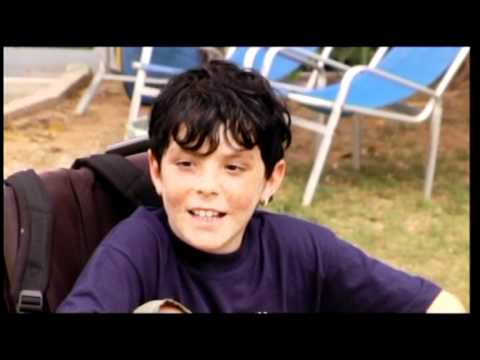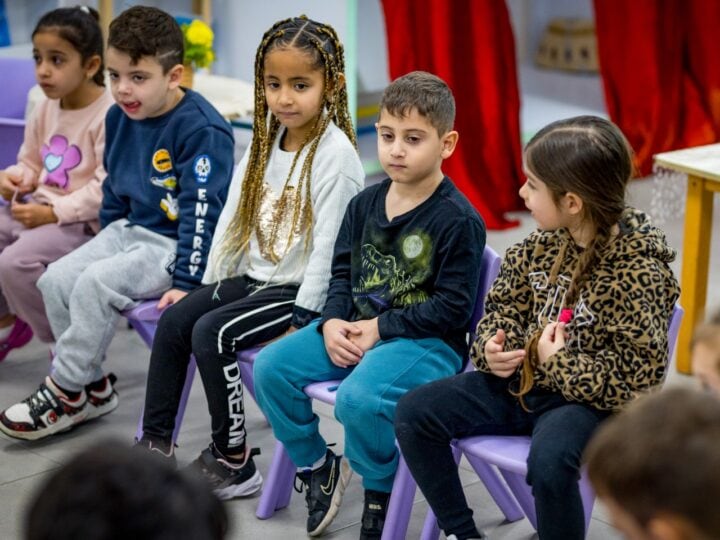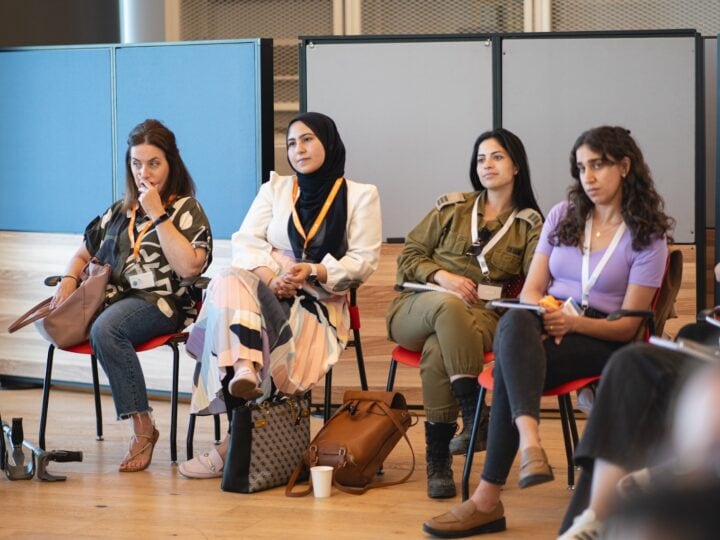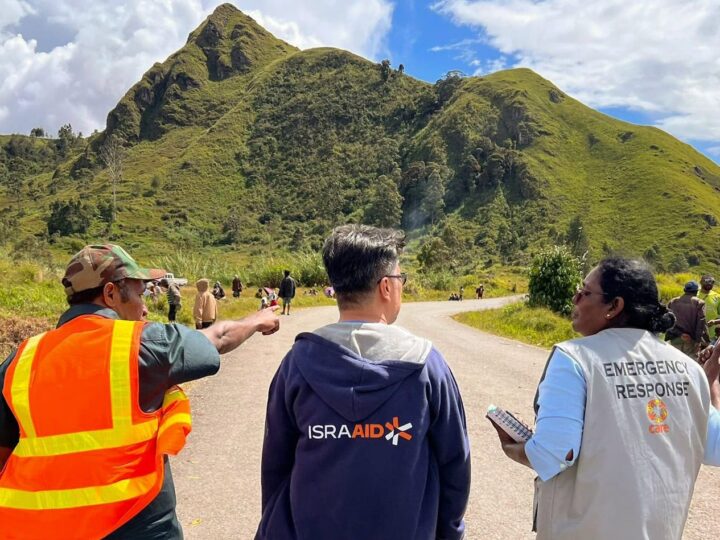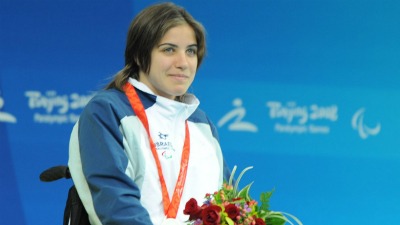
Some of the disabled athletes who train at the Israel Sport Center for the Disabled win medals in international competitions. But sometimes, success is measured in much smaller increments for the tens of thousands of physically challenged Israelis participating in programs of the center’s founding sponsor, ILAN, the oldest and largest voluntary organization in the country.
Success can mean mastering table tennis without hands, folk dancing in a wheelchair, earning a degree in cinema despite cerebral palsy, or befriending an able-bodied peer at summer camp.
ILAN was formed in 1952 to aid polio victims. Sixty years later, in addition to Sports Centers in Ramat Gan and Haifa, ILAN has 41 branches from Metulla to Eilat, residential facilities, day centers, sheltered workshops, sports clubs and integrative activities. It also supports special-needs kindergartens and child development centers.
Largely run by volunteers, ILAN won an Israel Prize in 2010 for serving “as a role model to society for volunteerism” through enabling Israelis with neuromuscular disabilities to enhance their quality of life regardless of religion or ethnicity, without fees.
It’s a role model not just for Israelis but also foreigners.
“When professional groups from other countries come to see us, they are always amazed,” says spokeswoman Aviva Movshovitz. “They always say, ‘We didn’t know there is something like that in Israel.'”
http://www.youtube.com/watch?v=b5iMr8Fm_ow
Recently, the Japanese ambassador to Israel requested an information exchange between Israel and Japan after attending a ceremony at the Sports Center — a world pioneer in sports rehabilitation, where thousands of children and adults participate in 20 different adapted sports activities, plus a range of therapies. A South American group requested more information based on their tour of ILAN’s Haifa daycare center for severely handicapped adults.
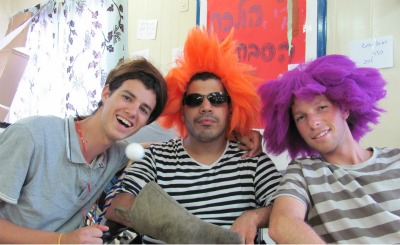
Donors from Friends of ILAN fundraising arms in France, the UK, the US, Canada and Germany visit often. Not long ago, Movshovitz tells ISRAEL21c, the new French Friends chairwoman observed an ILAN kindergarten and exclaimed that she knows of no similar program in her native country.
Pairing campers and volunteer teens
ILAN’s unique summer camps project also has international appeal. It serves nearly 1,000 children and teens in 42 communities, plus two camps for ages 21 to 30. The Rotary Club of Israel has sponsored the participation of a few campers from Thailand and Lithuania as well as overseas volunteers.
Because each camper gets one-on-one or two-on-one care, in addition to a cadre of organizers and supervisors the camps need a few thousand volunteers every summer.
ILAN chief social worker Dr. Yossi Meller explains that the camp began almost 30 years ago. “We saw that our kids, like regular kids, needed something to do that’s fun in the summer,” he tells ISRAEL21c, “and their parents needed respite because raising a child with severe disabilities is not easy. Then we learned that many teens at kibbutzim and settlements also needed something to do during the summer.”
Pairing the two groups for a week of fun activities has proven to be a win-win proposition.
The teen volunteers learn to do the intensive tasks normally left to parents, such as dressing, feeding, toileting and showering their campers. And they discover that campers with disabilities share with them similar interests and dreams, and can become their friends.
“It’s a really intense week, and they learn how to take responsibility from morning to night since they dorm with the campers,” says Ayelet Neumark, 20, coordinator of the ILAN camp for 24 children in Ma’aleh Adumim last summer. “They learn how to put ‘different’ people into their lives, looking at them with a new set of eyes.”
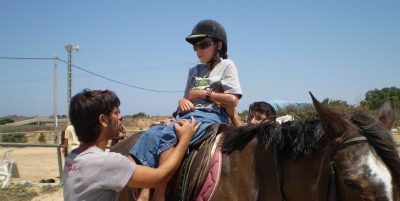
Many of the campers and counselors stay in touch and are re-paired the following summer. “We have one kid who can’t speak or hear. He has the same two volunteers every year and he knows how to show them what he wants,” says Neumark.
Thanks to subsidies, families only pay NIS 350 (about $80) including transportation, and often schedule their own much-needed vacations during camp week, Movshovitz says.
As a surprising side benefit of the program, it provides common social ground for campers and volunteers from diverse backgrounds. When teen counselors from secular kibbutzim and religious youth groups meet for joint activities with Jewish, Muslim and Druze campers, “that’s when you see what this project gives to Israeli society as a whole,” says Movshovitz. “It shows you really can work and live together.”
Adult care
As it goes into its 60th year, ILAN is starting to build new adult day centers in Tel Aviv, Haifa and Jerusalem.
Using municipal land, and with support from the National Insurance Institute and the Ministry of Social Welfare, ILAN will spend about $2 million on each facility. Open daily from 8-4pm to serve up to 50 clients in their own communities, ILAN day centers meet physical, social, educational and employment needs.
A key aspect is sheltered workshops. Clients do paid jobs, from stuffing envelopes and packaging hand wipes to crafting picture puzzles and aluminum signs.
“We are now in the midst of seeing how we can play a greater role in the process of employment,” says Meller. “There are great innovations in technology that lower the obstacles for people with physical limitations, such as computers that can be operated by blinking.”
For the past eight years, ILAN has given higher-education grants to about 20 people with severe disabilities. “We are proud to show society how those with great will and soul can overcome the struggles of a very limited body,” says Meller. “Research shows that higher education opens channels to employment for people with disabilities. They become part of regular society and are able to earn an income to supplement their social welfare benefits.”
ILAN also gives grants to families for adaptive equipment and therapies. But for those who choose to live independently, assisted residences provide a home-like environment.
“Our residence in Haifa is the most modern in the Middle East and maybe beyond,” says Movshovitz. “It was built specially for this purpose, and each living unit is adapted to the specific needs of its occupant. When people come and see it they are astonished, because in many countries adults with disabilities are put in old-age homes and there are no specific solutions for them. Our approach is that this is their home, not a hospital or institution.”
All kinds of athletes
Israeli delegations often participate in worldwide sports competitions for disabled athletes. The medals are piling up for several of them who train at ILAN’s Sports Centers. Nine ILAN athletes went to the 2008 Beijing Paralympics and returned with four silver medals: Inbal Pizaro won three for swimming, and tennis partners Shraga Weinberg and Boaz Kramer won the fourth. Kramer now directs the Ramat Gan site and is training for the London Games.
But you don’t have to be Olympic material to benefit from ILAN programs such as Sal Gal, a basketball league for disabled and able-bodied youth, who both play in wheelchairs. “At first, the disabled children win because they are used to the wheelchairs,” says Meller. “Eventually they become friends, and they understand each other.”




